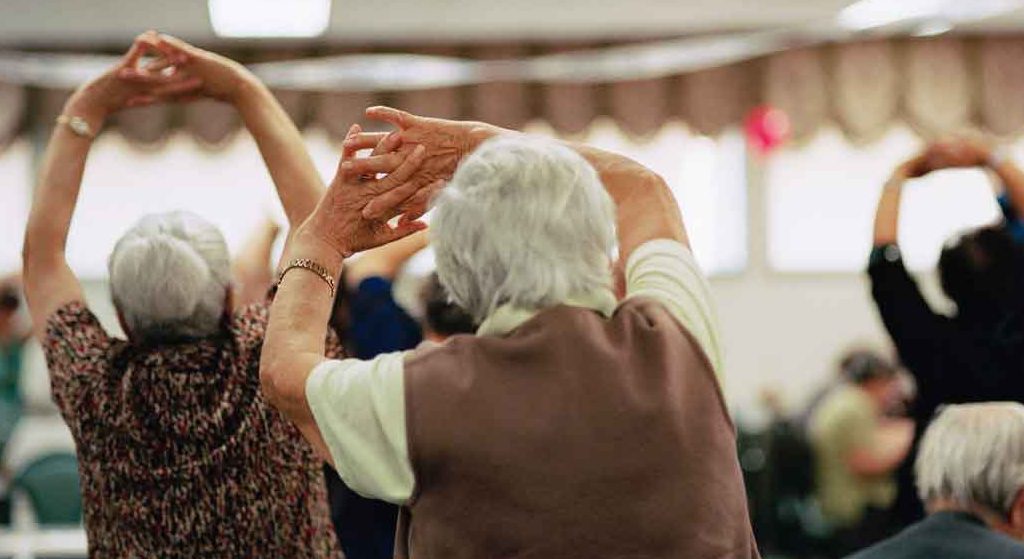Exercise May Help Delay Dementia

Everyone has memory glitches. But your best protection against mental decline as you age, including Alzheimer's disease, may be to get more aerobic exercise.
If you are middle-aged or older and can’t find your keys or where you put your cellphone, it’s easy to worry. Are you slipping? Could you be heading for a diagnosis of dementia?
Everyone has memory glitches. But the truth is, dementia is a huge and growing problem for American seniors. One in nine Americans aged 65 and older — 6.7 million people — live with Alzheimer’s disease, the most common form of dementia. Almost two-thirds are women.
While no drug can cure or help most forms of dementia long-term, scientists are finding something that may help stave off memory loss — aerobic exercise.
YOU MIGHT ALSO LIKE: When to Worry About Memory Loss
There are many reasons to exercise. Your daily jog or fast-walking routine boosts your heart function, protects your bones, can boost mood, and lowers your risk of cancer, stroke, and type 2 diabetes. Improve your fitness and you’ll feel more energetic, sleep better at night, have sharper memories, and feel more relaxed in the face of stress.
Regular exercise is also one of the only known ways to delay mental decline. On the other hand, inactivity doubles your risk of Alzheimer’s.
Research suggests that people who have a genetic marker for Alzheimer’s disease respond to exercise the same way others do, getting a boost in blood flow to their brains. Exercise may also promote neurogenesis, the formation of new neurons.
You don’t need to be an athlete to protect your brain. Even a little bit helps. For example, in a one-year study in five nursing homes, researchers concluded that exercising for an hour twice a week measurably slowed the progression of Alzheimer’s.
How much exercise is ideal? The U.S. Centers for Disease Control and Prevention (CDC) encourages adults to aim for at least 150 minutes of moderate intensity aerobic activity each week, along with at least two sessions of resistance training.
Researchers at the University of Kansas (KU) Medical Center have launched a 5-year study with four groups. Researchers are testing the effect of the CDC recommendations, as well as the impact of just doing resistance exercise, sticking to aerobics, or only stretching exercises. Volunteers entering the study are free of current cognitive decline.
In earlier research, the volunteers were divided into four groups. A control group didn’t have any monitored exercise, while the other groups worked out three to five times a week with certified personal trainers at a local YMCA. One group exercised for 150 minutes a week, a second worked out for 75 minutes weekly, and a third group exercised for 225 minutes per week.
All of the exercise groups started out with lower target heart rates and less intense exercise until their fitness improved over the course of 26 weeks.
The results were encouraging. "Basically, the more exercise you did, the more benefit to the brain you saw," said neurologist Jeffrey Burns, MD, co-director of the KU Alzheimer's Disease Center and the research leader. "Any aerobic exercise was good, and more is better."
The research indicated the intensity of the exercise mattered even more than the duration. It was also important for the volunteers to increase their fitness levels.
Learning that working out regularly may help and possibly protect your brain from Alzheimer’s could be powerful motivation to get moving. Marjorie Troeh, 80, who participated in the KU study, said she witnessed the ravages of dementia in her own family: Her grandmother and aunt suffered from Alzheimer’s.
"I love exercising my mind, but I hate exercising my body," she said. "I knew about the evidence that said exercise was good for endurance and agility, but I really didn't make any connection with that and brain health."
In another study, a team of researchers from Chinese University of Hong Kong and University College London followed the exercise habits and mental health status of over 15,000 elders 65 and older for six years. None of the research subjects had a history of stroke, Parkinson’s disease (which can affect memory), or cognitive problems when the research began.
The results showed daily aerobic activity lowered the odds of developing dementia, as did classes in yoga and tai chi.
Updated:
May 02, 2023
Reviewed By:
Christopher Nystuen, MD, MBA and Janet O'Dell, RN